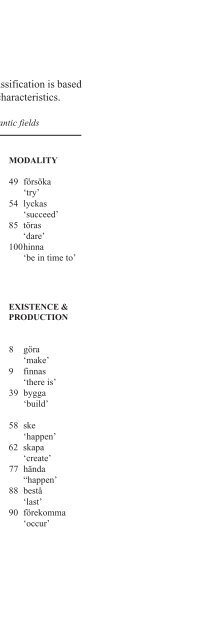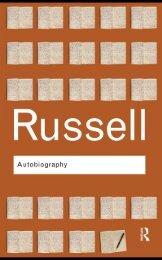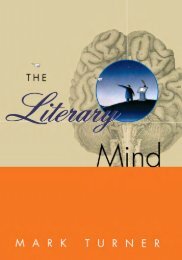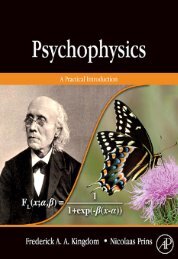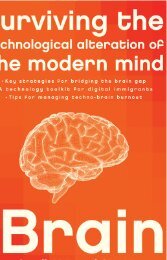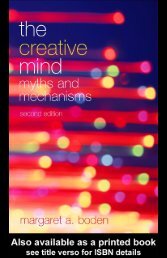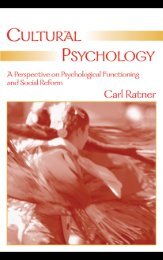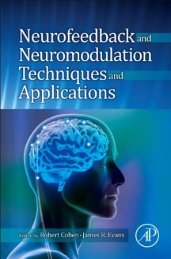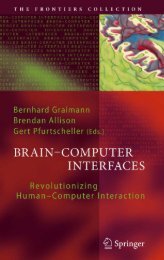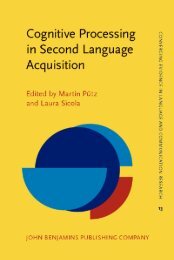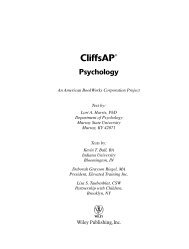Cognitive Semantics : Meaning and Cognition
Cognitive Semantics : Meaning and Cognition
Cognitive Semantics : Meaning and Cognition
You also want an ePaper? Increase the reach of your titles
YUMPU automatically turns print PDFs into web optimized ePapers that Google loves.
186 JORDAN ZLATEV<br />
often referred to as “the creativity of language” owing to the writings of<br />
Chomsky, who in the following characteristic passage brings up this feature<br />
<strong>and</strong> uses it as a weapon against theories that make recourse to some notion of<br />
“similarity” in explaining novel usage.<br />
The most striking aspect of linguistic competence is what we may call the<br />
‘creativity of language´, that is, the speaker’s ability to produce new sentences<br />
that are immediately understood by other speakers although they bear no<br />
physical resemblance to sentences which are ‘familiar’. (Chomsky 1971 :8)<br />
In the onslaught on behaviorism mentioned earlier, Chomsky is somewhat<br />
more explicit in his criticism, arguing for the necessity of a generative grammar<br />
as (part of) an explanation of “creativity”:<br />
It is easy to show that the new events that we accept <strong>and</strong> underst<strong>and</strong> as<br />
sentences are not related to those with which we are familiar by any simple<br />
notion of formal (or semantic or statistical) similarity or identity of grammatical<br />
frame. Talk of generalization is entirely pointless <strong>and</strong> empty. It appears<br />
that we recognize a new item as a sentence not because it matches a familiar<br />
item in any simple way, but because it matches the grammar that each<br />
individual has somehow <strong>and</strong> in some form internalized. (Chomsky 1959 :56).<br />
However, a generative grammar cannot in principle account for the underst<strong>and</strong>ing<br />
<strong>and</strong> producing of novel expressions since it is simply a syntactic<br />
calculus with recursive functions: a technical device that can at most separate<br />
the “grammatical” from the “ungrammatical sentences” <strong>and</strong> associate the first<br />
with syntactic analysis (<strong>and</strong> in more recent versions “logical form”). This<br />
makes Chomsky even less convincing when he in an off-h<strong>and</strong> way dismisses<br />
any appeal to similarity <strong>and</strong> generalization in the quotations above.<br />
A generative grammar can of course be complemented with a compositional<br />
semantic theory where the basic idea is that the meaning of the composite<br />
expression is a function of the meaning of the parts <strong>and</strong> their means of<br />
combination. Once we know the “meanings” of the words in a sentence,<br />
disregarding whether it is new or not, all we need to do is to combine them<br />
according to semantic rules that are parallel to the syntactic rules in order to<br />
derive the meaning of the sentence, i.e. “underst<strong>and</strong>” it. Working out the<br />
details of such “a theory of meaning” has been a major task in more (formal)<br />
semantically oriented linguistics <strong>and</strong> analytical philosophy, often under the<br />
motto of “meaning-as-truth-conditions”.<br />
However, the compositional approach to explaining creativity has serious<br />
problems <strong>and</strong> below I list some of the foremost while I omit discussion


